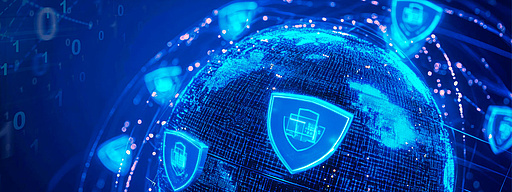
Sustainable IT: The impact of the EU’s new CSRD regulations
If you’re prone to nodding off when someone brings up a subject like corporate environmental and social responsibility, then you’d better go get a fresh cup of coffee. That’s because a new EU regulation significantly increases the scope and scale of reporting requirements on the environmental, social and the economic impacts of IT and other business processes. So, top off your mug as we look at how the new Corporate Sustainability Reporting Directive (CSRD) will affect IT departments at EU- and non-EU-based companies operating in Europe.
In short
- The new CSRD significantly increases reporting requirements for sustainability measures.
- EU-wide standards are intended to improve transparency and place CSR at the strategic center of corporate decisions.
- IT departments will also have to increase their focus on energy efficiency and the impacts of procurement processes.
The EU’s new Corporate Sustainability Reporting Directive (CSRD) significantly expands the number of companies and scope of reporting required on the environmental and social impacts of business practices. The CSRD builds on the 2014 Non-Financial Reporting Directive (NFRD) -- which primarily applies to large and other companies of significant public interest. The new regulations came into effect for those companies this year. In 2025, large companies that were not previously subject to the NFRD must follow CSRD standards. Starting in 2026, the CSRD will also apply to small and medium-sized companies, including EU-based and subsidiaries of non-EU-based companies meeting 2 out of 3 criteria : more than 250 employees, annual revenue greater than €40 million ($43.8 million) and assets of €20 million ($21.9 million). It also will apply to all companies with securities listed in an EU market.
CSR compliance: from optional to mandatory
With the new regulation, IT departments will have to pay much closer attention to whether their operations are in line with their company’s CSR goals. The environmental footprint in particular will become increasingly important. In addition to energy consumption, IT managers will also have to consider waste reduction related to hardware components and the transparency and fairness of their supply chain processes. The intent is to reduce the amounts of electronic waste generated annually and the consumption of other materials including rare earths and precious metals.
Recycling and transparent supply chains
The durability of devices and appliances and the ability to reuse or recycle components will play a much greater role. Innovative leasing models and take-back programs for old devices will also become more important. IT buyers also can no longer ignore the state of their supply chains, particularly with regard to fair working conditions and respect for human rights in production processes. In fact, a precise selection of suppliers for IT components based on sustainability aspects is now becoming mandatory.
Important milestone: energy efficiency
The increased focus on forward-looking environmental and social standards affects IT managers directly. In future, they will have to be more accountable to management and ensure that their department supports the company’s CSR goals. Some areas will be easier to optimize than others. For example, measures related to supply chain processes, IT energy efficiency and resource conservation can be worlds apart.
CSRD: What is changing?
- More companies are subject to reporting requirements: According to EU estimates, the number of companies covered by CSRD will increase from 11,600 to around 49,000, including many small and medium-sized businesses.
- The scope of reporting: Companies will need to provide much more specific information about the impact and sustainability risks of their business activities on the environment, society and the economy.
- Uniform reporting standards: New standards have been defined for the collection, evaluation and disclosure of environmental, social and governance (ESG) data so stakeholders can assess a company's CSR compliance more effectively.
- CSR takes center stage: CSR disclosures become an integral part of traditional corporate financial reporting and will be subject to external audit.
Improve your CSR balance sheet with the bMS
The baramundi Management Suite provides tools to optimize the energy efficiency and sustainability of your IT infrastructure today. With our free Energy Management Module, you can quickly and easily implement intelligent
energy management by identifying energy consumption for each network endpoint and opportunities to reduce usage and costs. Our Inventory and our Network Device module also provides important data for endpoint energy and
lifecycle management, including information for planning hardware replacements to minimize waste and procurement costs. You can quickly see opportunities to make a big impact with even
small improvements. What’s more, IT can actively make and document positive contributions that improve your company’s CSR balance sheet today and in the future.
Ready for more coffee? 😎
Read more
Cyber resilience: the most important trends for secure endpoint management
The ingenious principle of Linux software management
- Tags:
- uem,
- bms,
- linux,
- managed software


